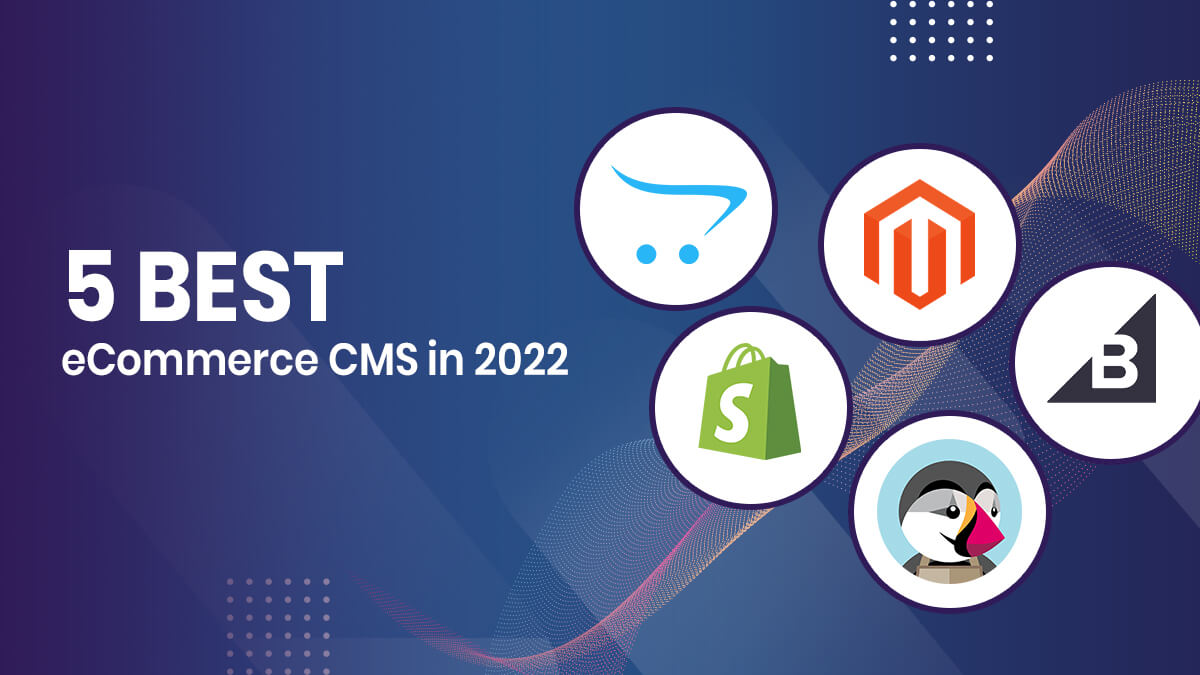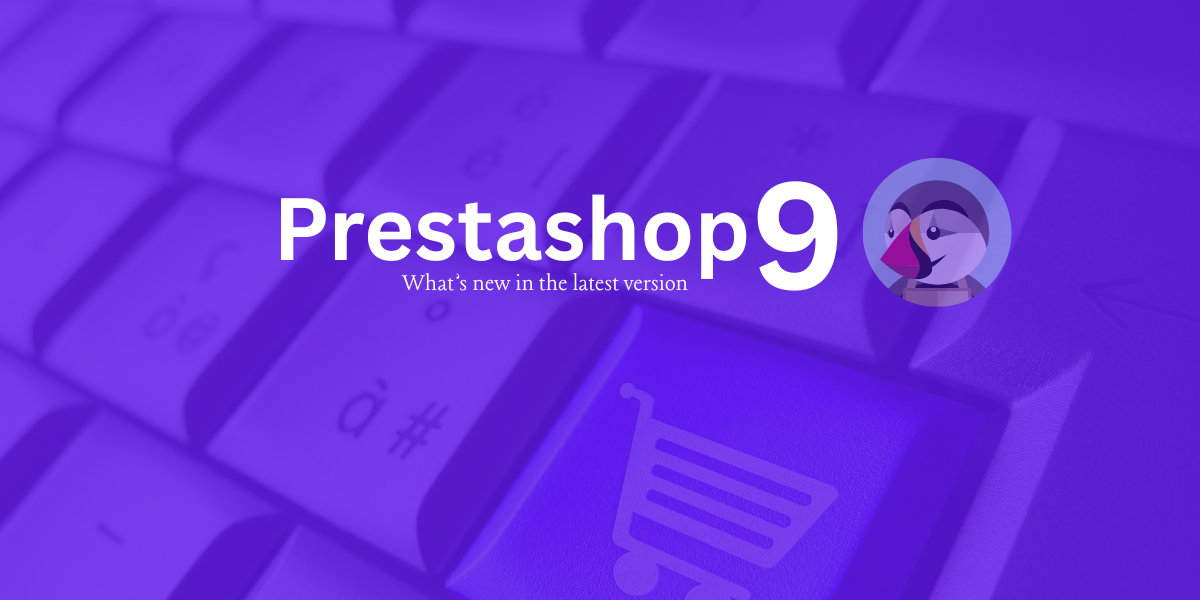The latest version of the globally renowned CMS, PrestaShop is available for use. PrestaShop 9 comes with loads of enhancements focussed on frontend,
Read More
Founded by Pierre Burgy, The CMS (Content Management System) technology is one of the most revolutionary inventions among tech enthusiasts.
Not because it has disrupted the web development sector, but because it has made it possible for non-digital people to imagine themselves in an online space where they also can leverage their reach towards a global audience.
Being a PrestaShop development agency, we have developed numerous eCommerce webshops for over 7 years and observed that the growth of e-business is increasing like never before.
In fact, it is expected to reach about 7.4 trillion dollars by 2025. This means that building an online webshop using CMS is one of the most thoughtful decisions of this time.
This blog post covers everything you need to know about a CMS, including:-
So, let’s get started, shall we?

A content management system (CMS) is software that allows eCommerce store owners to build, edit, and publish digital website information without having to code it. Users also can customize the appearance and feel of their online store, such as changing product page layout, customizing the webshop theme, or adding promotional banners, among other things.
A good eCommerce content management system makes running an online business more effortless. Instead of spending hours on the tedious, technical aspects of running an online store, you may concentrate on selling your goods.
Ecommerce platforms allow you to build and edit your online stores without writing any code. They’re popular among small business owners who aren’t very tech-savvy to design their websites from scratch. Moreover, numerous eCommerce software suppliers allow you to be creative and make a webshop that complements your brand.
Recommended Read: How to start your own eCommerce business – A detailed Roadmap
Understanding the differences in eCommerce cms solutions and their advantages and disadvantages can help you select the best platform for your online store.
But before we dive straight into the list of leading eCommerce solutions of 2022, let us tell you the top features you should be looking for when researching a CMS for your business.
Intuitive Dashboard: A dashboard is the core of your CMS. It should be easy to use and intuitive enough to help you control, manage, and regulate your webshop operations.
Responsive Themes: Every CMS offers you some built-in themeing options. It is essential to select one that offers responsive themes. Responsive themes can adapt to any resolution and ensures a pleasing user experience.
Robust set of content editing & publishing tools: The primary reason behind having a CMS is publishing and managing your content. Be sure to choose the one with a robust set of editing, publishing, and content creation tools.
Version Controls & Backups: A good eCommerce CMS allows you the flexibility to switch between its versions. It must also support an automatic backup feature, so you never lose anything necessary for your online business.
Built-In SEO Tools: Search engine optimization helps you ace your digital race against competitors. Though it is not the only factor, it is a potent one to have included in your CMS to optimize your content for the best search results.
Analytics & Reporting: Your eCommerce CMS solution must have detailed analytics and reporting features. Through this, you can measure the performance of your campaigns, the quality of your content, analyze your audience, and so on for improved decision-making.
Untappable Security: Security is one of the essential factors in a CMS. In the rising space of cybercrime, your platform must include robust security features like SSL security, XSS, CSRF, 2-factor authentication, etc.
That’s it!
We believe you are now ready to see the updated list of best eCommerce CMS verified by eCommerce experts.

OpenCart is a free, open-source ecommerce CMS. It’s unique because it manages to be both free and straightforward to use. That isn’t always the case with open-source applications!
The reason why OpenCart is a part of this list is its platform’s clarity, core functionality, and the availability of numerous powerful extensions. This means you may quickly build up your webshop’s basic structure and add extra features to it.
Third-party providers also give a variety of free templates that may be used to set up an online store using OpenCart.
Features of OpenCart
Advantages of OpenCart
Drawbacks of OpenCart
OpenCart Pricing

BigCommerce is a SaaS ecommerce platform that helps begin, run, and maintain webshops for internet retailers. It’s well-known as the Content Management System of major corporations such as Toyota, Burrow, and Skullcandy.
The main reason why they’ve attracted significant businesses is because of their firm and versatile website builder. You may not only utilize their customizable templates, but you can also modify every HTML and CSS code on their site.
BigCommerce’s flexibility and scalability help it appeal to both small companies that need a website quickly and large firms that can pay for custom development.
BigCommerce’s CMS is packed with helpful ecommerce tools. Advanced SEO functions, sales analytics, and a range of social media-oriented marketing tools are available.
Features of BigCommerce
Advantages of BigCommerce
Drawbacks of BigCommerce
BigCommerce Pricing

Shopify is an ecommerce CMS platform explicitly designed for this purpose. As a result, it’s compelling and well-equipped. Because it saves you lots of time and work, Shopify is one of the most outstanding ecommerce CMS platforms available.
A big reason to choose Shopify is that it allows you to host your store on their web servers after creating it. You don’t have to acquire a domain name and web hosting if you opt for this CMS. You’ll also find numerous helpful plugins in their comprehensive App Store for anything the main platform can’t handle.
Shopify’s site builder is simple enough for even a computer newbie to use, which is good news if you’re not a developer. There are several templates and themes to select from. However, experienced developers may personalize Shopify stores because the platform enables them to modify their CSS and HTML code.
Features of Shopify
Advantages of Shopify
Drawbacks of Shopify
Shopify Pricing

Backed by Adobe’s 40 years of trust, Magento is a premium yet open-source eCommerce platform. The structure is built in PHP, making it easy for store owners to set up their online shops.
Magento’s flexibility allows store owners to spread their arms and offer an omnichannel experience for both B2C and B2B audiences. The platform is user-friendly, scalable, and flexible enough to meet the requirements of small as well as large enterprises. Furthermore, it enables third-party extensions to be integrated, resulting in various digital retail experiences.
According to the global community, Magento handles more than $100 billion in gross merchandise volume each year. It has established a worldwide network of more than 300,000 Magento developers.
Furthermore, Adobe has a vast Magento Marketplace where multiple extensions are available to download. If you own an online shop that sells goods, Magento is undoubtedly worth checking out.
Features of Magento
Advantages of Magento
Drawbacks of Magento
Magento Pricing

Acing the list of best eCommerce CMS in 2022, PrestaShop is a lightweight and straightforward CMS that offers extreme control over how you set up and manage your eCommerce webshop.
As a result of its open-source architecture, it is built so that you can use the essential software for free and pay for extra features (Which are inexpensive). You’ll also have to cover your hosting expenses.
If you work with a PrestaShop web developer, they will be able to modify all of the code in PrestaShop. This might result in some genuinely distinctive website designs.
However, you may also build your website with their ‘What You See Is What You Get’ editor (even if you aren’t very tech-savvy).
Once you’ve established a basic style, you may add modules to your store’s functionality. For example, you can explore PrestaShop’s hundreds of Facebook and Instagram selling extensions or SEO optimization plugins.
If you want some feature built exclusively for your webshop, a PrestaShop module development agency would be your best bet.
Features of PrestaShop
Advantages of PrestaShop
Drawbacks of PrestaShop
PrestaShop is entirely free. You only need to incur your hosting charges.
At the end of the day, the best eCommerce CMS for your business will be one that you feel comfortable using, and that has all of the features you need to run your online store.
While our top five choices may vary depending on your specific requirements, we are confident that any of these platforms can help you take your business to new heights in 2022.
If you’re ready to get started, schedule a call with our professionals today! We would be happy to discuss which platform is right for you and answer any questions you have about getting started with eCommerce.
Thanks for reading!

If you want a free audit of your Prestashop project click here

The latest version of the globally renowned CMS, PrestaShop is available for use. PrestaShop 9 comes with loads of enhancements focussed on frontend,
Read More